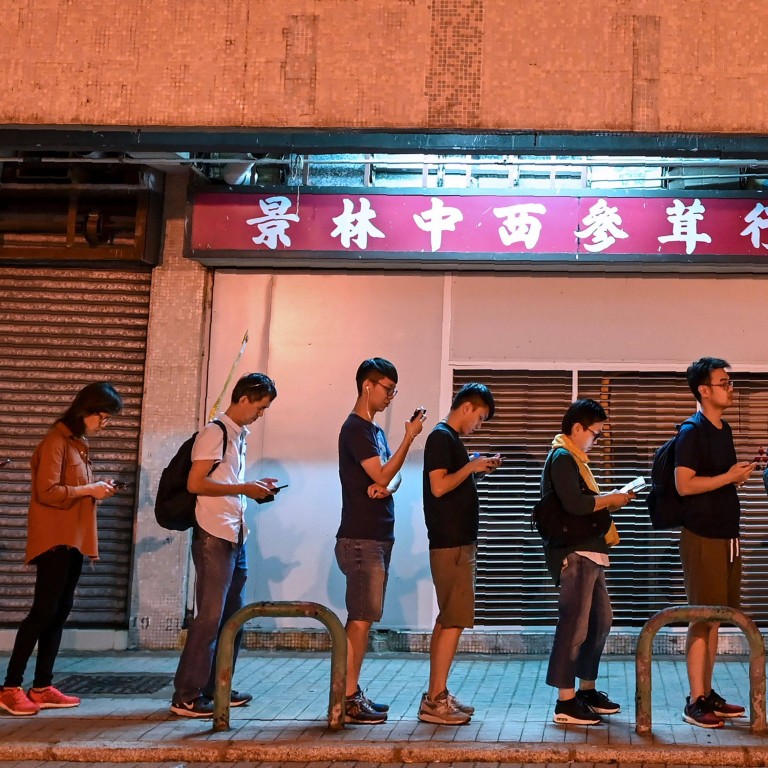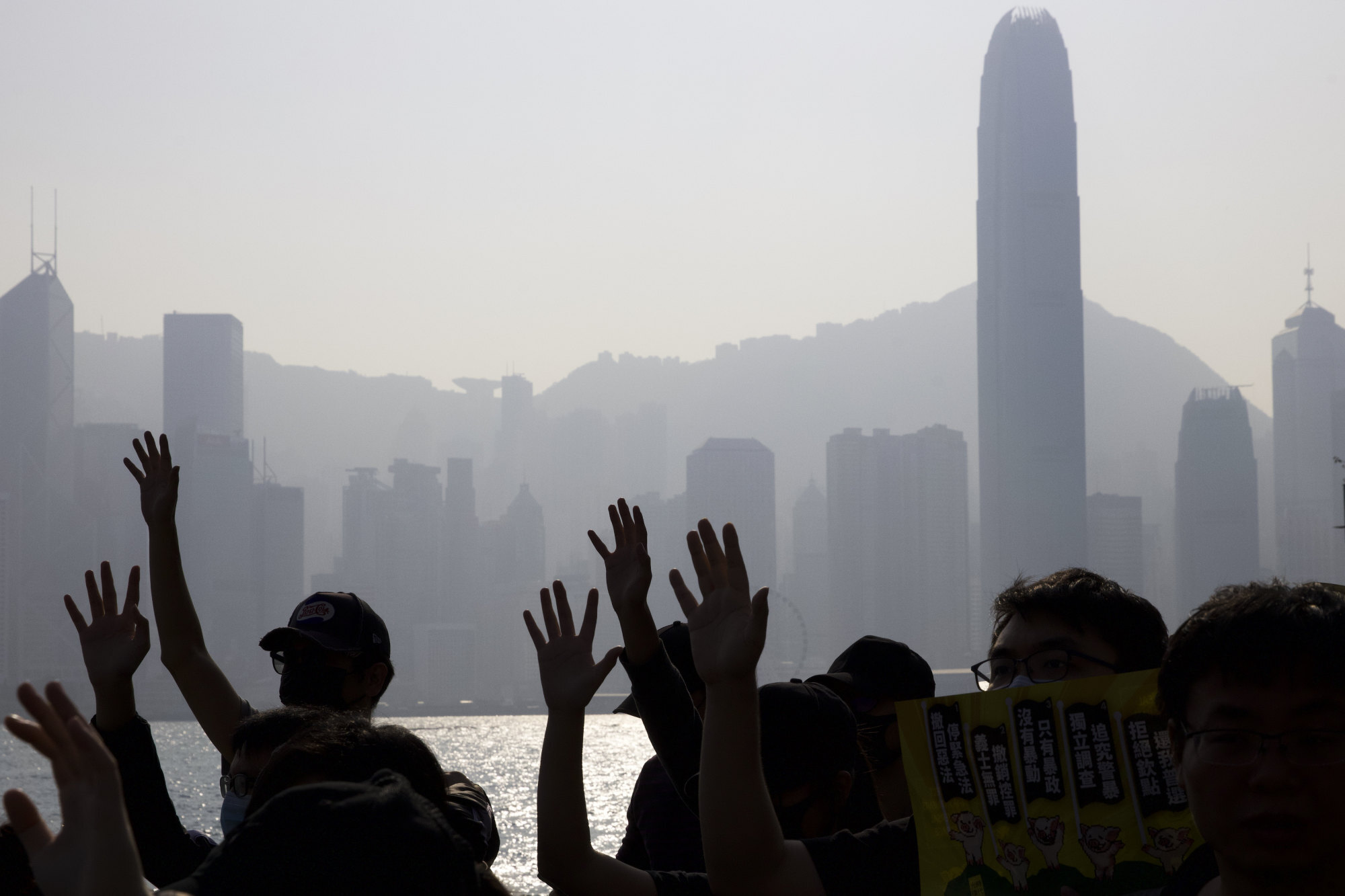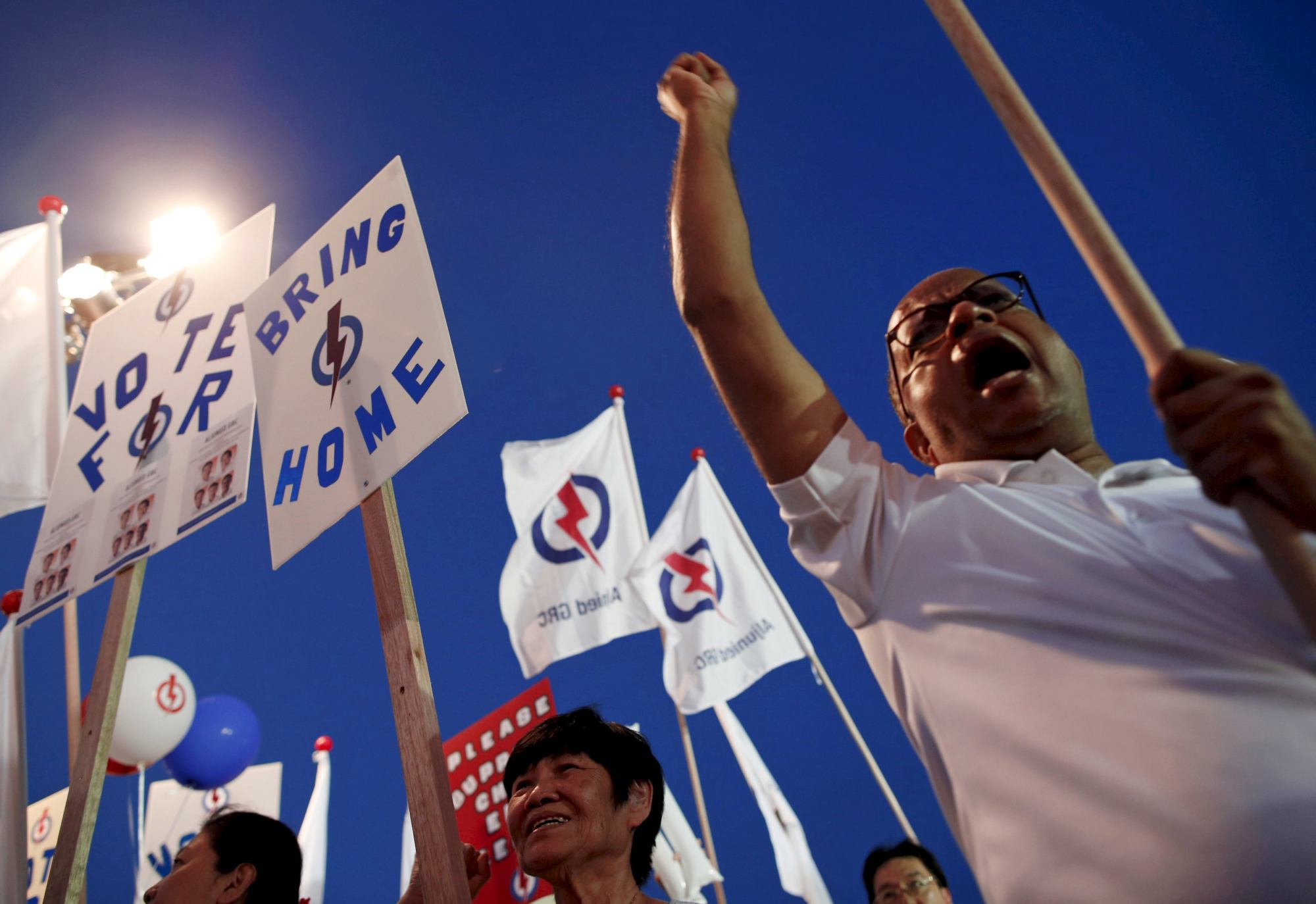
Hong Kong politics post-national security law: why Singapore’s Barisan Sosialis could hold lessons for city’s opposition
- A walkout from the island nation’s parliament in 1966 has become an unlikely reference for Hong Kong’s pan-democrats of today
- Singapore’s opposition has never regained the ground it gave up decades ago – something to keep in mind as activists mull a collective boycott of the city’s new political system
The object of their curiosity is the opposition walkout from Singapore’s Parliament in 1966, and the lessons it might hold for Hong Kong’s pan-democrats of today.
Is this what Hong Kong has come to? The city’s once defiant and rambunctious activists, who used to look scornfully at the Southeast Asian republic’s lack of civil liberties, now fear that Singapore’s past is Hong Kong’s future. Singaporeans’ constitutionally guaranteed capacity to change their government through the ballot box has become something Hongkongers can only fantasise about.
Singapore’s press overhaul will stay true to Lee Kuan Yew’s 50-year-old blueprint
The opposition’s next ambition was to secure more than half the seats in the Legislative Council. Last July, it held an unofficial primary to consolidate its voter bank and boost its chances at the polls.
The Hong Kong that could dream of turning the tables on the pro-Beijing establishment now seems a world away. The convulsions of 2019–20 persuaded the central government enough was enough. Beijing has taken up hammer and tongs to break up the entire Hong Kong political system, piecing it back together minus all the elements that added uncertainty to the business of government.

The opposition’s all-or-nothing stance, stoutly asserted from 2014 to 2019, has gained the bloc less than nothing. It is weaker now than before the Occupy protests of seven years ago.
Faced with a grossly unbalanced electoral system, opposition members now have to consider whether to play by the new rules or walk away in protest. Understandably, some individuals have already renounced public life, deciding to lead a quiet existence away from the limelight.
Singapore election: hard truths for the PAP as voters deny ruling party an easy ride into power
Some have gone further, arguing for a collective boycott of the new political system, including all elections henceforth. Any form of participation, these voices argue, is tantamount to legitimising the new electoral arrangements.
There have also been calls for voters to boycott the coming elections or to cast a blank vote as a form of protest. The government has threatened to introduce legislation to outlaw such organised civil disobedience, but how a ban could be enforced remains unclear. It would probably fail to deter Hongkongers, who do not lack ingenuity.
The prospect of a mass withdrawal of Hongkongers from the electoral system is where Singapore’s history has some relevance. In 1966, when Barisan Sosialis was the largest opposition party in the city state’s Parliament, it decided to stage a walkout to wage an extra-parliamentary struggle. It did not want to lend credence to the “phoney” independence the country had secured just the year before. Barisan refused to take part in elections, insisting that Singapore’s system was not a true parliamentary democracy. It boycotted the 1968 elections, though it tried to return to the scene in the 1972 polls.

The opposition never recovered from that strategic error. After the previous election, Barisan held a quarter of seats. From 1966 to 1981, the opposition had none, while the ruling People’s Action Party (PAP) had an absolute monopoly of seats. During that period, the PAP pushed through with little resistance policies that helped the country progress economically, but also curtailed civil and political freedoms. The opposition, currently holding only about 10 per cent of seats, has yet to recover the ground vacated by Barisan Sosialis 55 years ago.
With some justification, Hong Kong’s politicians may feel that they should not dignify what they see as an illegitimate political architecture superimposed by Beijing and designed to straitjacket them. It is their prerogative to boycott the process. What is more arguable is whether they should insist on a uniform stance, requiring everyone to fall in line behind a boycott.
Hongkongers, like activists and politicians everywhere, enter politics for different reasons. For some, it is to make Hong Kong more democratic. These are the people who may be most strongly in favour of a boycott.
For others, it is to improve policy or to effect change at the municipal level, or to fight for the rights of the underprivileged or voiceless. Such activists have good reason to want to continue working for the community, even if it means swallowing their pride and playing by the new rules.
In the case of Barisan, some who had been arrested in earlier crackdowns ended up staying away from public life for good, though a few returned to active politics and others found ways to serve their country through community work.
Perhaps this is the best lesson for Hong Kong’s opposition: to be tolerant of divergent paths that trying circumstances demand. None of them may be ideal, but none should be deemed ignoble or unprincipled. Trying to apply a purity test on others may give one a sense of moral comfort, but it is unlikely to help a post-NSL Hong Kong preserve its unique spirit or strengths.

